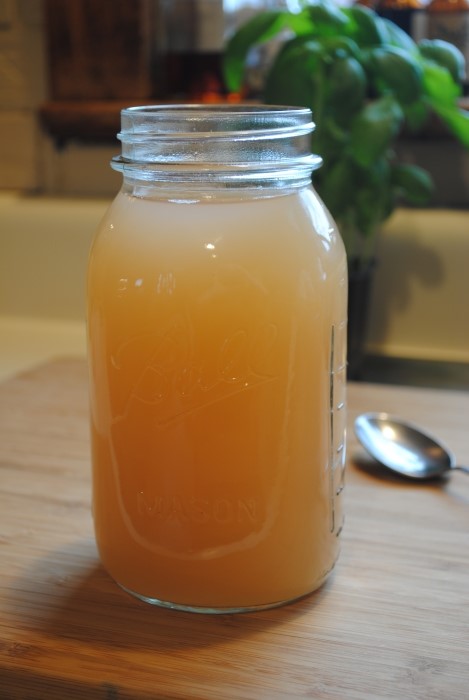Apple cider vinegar does have a longstanding experience of use as a homeopathic treatment for ailments such as sore throats and varicose veins. Apple cider vinegar is largely apple juice, but the sugar in the beverage is converted to alcohol when yeast is added. Fermentation is the term for this procedure. The alcohol is converted to acetic acid by bacteria. This is what provides vinegar its sour flavor and pungent odour.
Some individuals consume the vinegar directly or use it as a salad dressing. Others consume capsules or consume gummies as a supplement. You can make your apple cider vinegar yourself, and we’ve included the recipe below. Apples and their components, such as antioxidants, antiproliferative agents, and the way cells communicate and collaborate, may help to minimize the risk of developing chronic diseases.
Table of Contents
Let’s begin
Homestyle apple cider can be produced in the slow cooker or on the stovetop, and while both methods take a few hours, the result is well worth it! Before putting the apples in a stew or crockpot, cut them in two and split the oranges. To avoid boiling over, prepare this apple cider in the biggest pot you have or divide the contents among two pots. Pick apples that you like or those you have now on available. It’s quite simple to make, and it’s the ideal way to utilize all of those excess apples you assumed you’d convert into apple pie following your apple-picking excursion. You could also use stevia droplets or powders to eliminate the need for artificial flavoring.
Recipe of Apple cider vinegar
Ingredients:
- 10 bigger apples sliced
- 1/2 orange (split into halves)
- 4 cinnamon raw
- 1 tsp. cloves
- 1 tsp. whole allspice
- 1 whole nutmeg
- 1/2 c. packed brown sugar or stevia
Instructions:
- Add apples, citrus, cinnamon, and brown sugar to a large stockpot on moderate flame. Cover by at minimum 2″ with water. Bring to a simmer, then lower to low heat and cook for 2 hours, covered.
- Discard the orange halves, then crush the apples with a potato masher or a slotted spoon. Return to low heat and cook for another hour, undisturbed.
- Using a fine mesh strainer, press on the solids with a metal spoon to extract all of the juices. Solids should be discarded.
- The apple cider is ready to drink.
Tips to follow:
- If the sweet apple cider darkens and becomes cloudy, it is fermenting and turning into apple cider vinegar, which will taste nasty and sour. It’s not dangerous; it’s simply fermenting into hard cider.
- To flavor, adjust the sweetener. For a spicy cider, we normally use 50g of white sugar. Use 100g of powdered sugar if you want your apple cider to be sweeter, like those you buy at the supermarket.
Benefits of Apple cider vinegar
- For millennia, vinegar has been utilized as a cure. It was used to cure wounds by the ancient Greeks. People have been using apple cider vinegar to lose some weight, boost heart health, and even cure dandruff in past years.
- One of apple cider vinegar’s greatest compelling health advantages was that it could help with diabetes. Insulin resistance leads to elevated blood sugar levels, which causes type 2 diabetes. It can also aid in the reduction of blood sugar levels in healthy users. Maintaining insulin levels under check, on the other hand, would not be of much use.
- Vinegar can help eliminate germs and other infections. Vinegar has long been used to clean and disinfect, as well as to treat nail fungus, lice, sores, and ear infections.
- Apple cider vinegar is a popular treatment for skin disorders such as eczema and dry skin. The skin is mildly acidic by nature. External apple cider vinegar may aid in rebalancing the skin’s natural pH and enhancing the protecting skin barrier. Alkaline soaps and washes, on the other side, may irritate eczema and exacerbate conditions. Apple cider vinegar’s antimicrobial qualities could theoretically help prevent skin infections associated with eczema and other skin diseases.
- Optimizing your cholesterol and triglyceride levels is beneficial to your overall health. Apple cider vinegar users have been shown to have lower cholesterol levels.
Risks and side effects of Apple cider Vinegar
- Apple cider vinegar is a well-known household item. Its widespread use may lead to the perception that it is risk-free. However, you should be informed of some possible adverse effects. They would be more of a concern if the vinegar is excessively powerful or if it has been in contact with your skin for an extended period.
- It’s also possible that your potassium levels will go too low as a result. That vitamin is required for your muscles and nerves to function properly.
- Another research on type 1 diabetic patients demonstrated that apple cider vinegar inhibits the passage of food and liquids from the stomach to the bowels. Slower digestion makes it more difficult to maintain blood sugar control.
